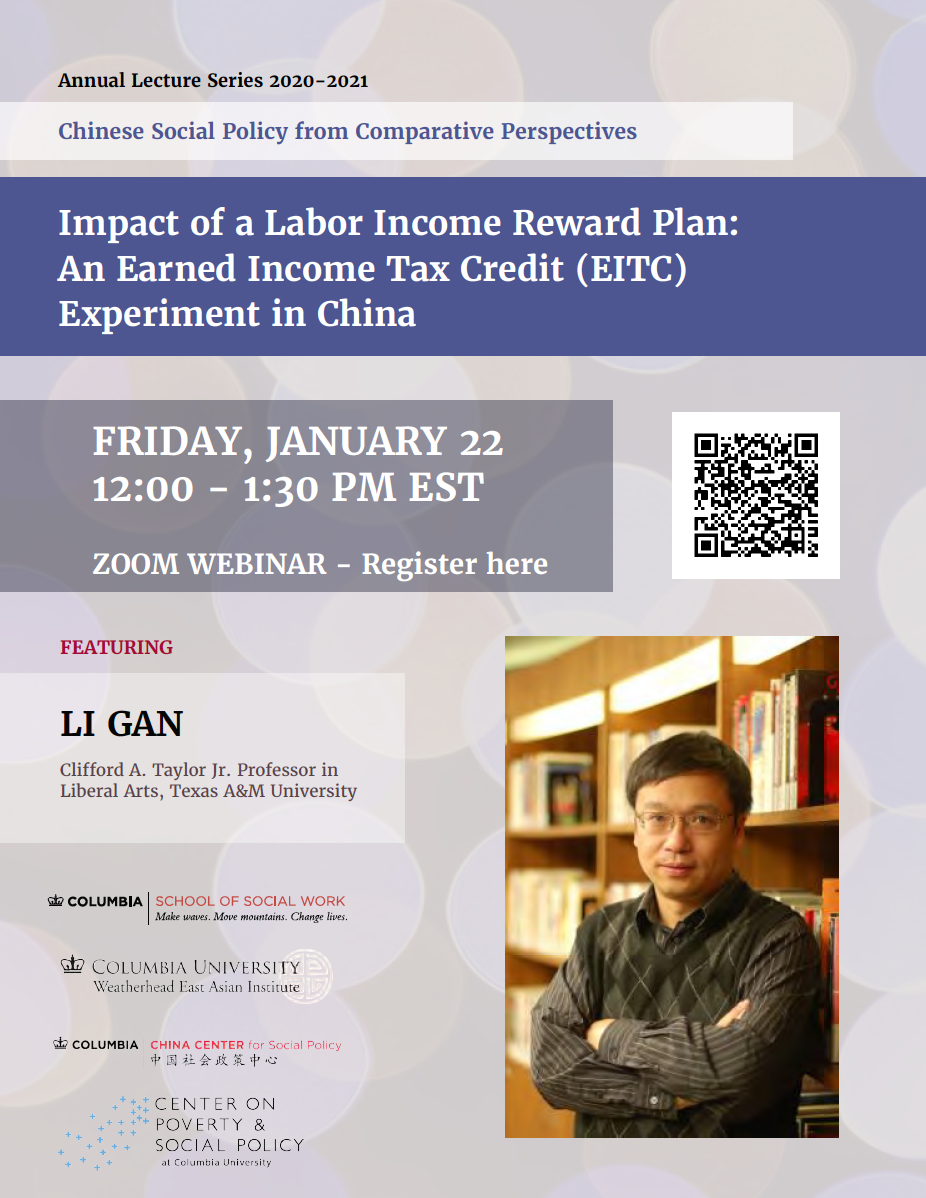About the Event:
China currently has no in-work benefit nor social welfare programs such as the Earned Income Tax Credit (EITC) in the United States. Yet, the literature and global evidence have suggested EITC-type programs’ potentials on poverty alleviation and work incentives. This study examines the first-ever EITC field experiment in China with strong treatment intensity (20% of household monthly income) and rigorous validation procedure. The two-year experiment on 259 households shows that the participation of the program increases employment by 0.33 person (14%) and monthly working hours by 81 hours (40%) per household. We also find significant increases in household earnings and expenditures. These effects are substantially larger than the existing literature partially because of the strong treatment intensity. Our study contributes to a large literature that studies the effect of in-work benefits.
About the Speaker:
Li Gan, Clifford Taylor Jr. Professor in Liberal Arts at Texas A&M University, is a specialist in econometrics and applied microeconomics. He obtained Bachelor of Engineering from Tsinghua University in 1987, Master of Science in statistics and PhD in economics from the University of California, Berkeley in 1998. He has published extensively in areas such as econometric theory, economics of aging, public economics, and Chinese economy.
In 2009, Dr. Gan initiated and has been directing the China Household Finance Survey (CHFS) at the Southwestern University of Finance and Economics in Chengdu, China. The ongoing survey has a nationally and provincially representative sample of more than 40,000 households. Some findings from the survey, such as China’s income Gini coefficient, housing vacancy rates, credit accessibility, and household asset allocations are widely reported in China and around the world.
This lecture is part of the 2020-2021 annual lecture series on "Chinese Social Policy from Comparative Perspectives" co-sponsored by the Columbia China Center for Social Policy and Weatherhead East Asian Institute and supported by the Columbia School of Social Work. This lecture is also co-sponsored by the Center on Poverty and Social Policy at Columbia University.
